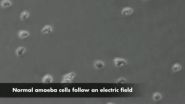(Press-News.org) Zoonotic malaria has been shown to be caused by two genetically distinct Plasmodium knowlesi parasite subpopulations associated with different monkey host species in Malaysia, according to new research published in PLOS Pathogens. The authors believe this could have important implications for how the parasite adapts and spreads in humans.
Plasmodium knowlesi is a zoonotic malaria parasite which is common in forest-dwelling macaques. In recent years, increasing numbers of cases of knowlesi malaria have been reported in humans. The disease is now the most common form of human malaria in many areas of Malaysia, and has been reported across south-east Asia.
The new study, led by researchers at the London School of Hygiene & Tropical Medicine and University of Malaysia Sarawak (UNIMAS), used sensitive genotyping methods to analyse samples of 599 P. knowlesi infections (552 in humans and 47 in wild macaques) at 10 sites in Malaysia. They identified two genetically divergent subpopulations of P. knowlesi in human cases, each associated predominantly with a different species of reservoir host - long-tailed macaques and pig-tailed macaques respectively.
Senior author, David Conway, Professor of Biology at the London School of Hygiene & Tropical Medicine, said: "We were very surprised to find that knowlesi malaria is really two separate zoonoses going on at the same time. There is a lot of genetic diversity within each of the parasite types, but the high level of divergence between them indicates they are probably different sub-species being transmitted separately, within the same areas.
"In most places we surveyed, both parasite types coexist and infect people. If zoonotic transmission continues to be common, it becomes more likely that the two types may hybridise genetically, leading to new possibilities for parasite adaptation to humans or additional mosquito vectors. However, as parasite mating occurs within the mosquito, hybridisation would depend on whether the same vector species is sometimes infected by both types, which needs investigation."
Study lead author, Paul Divis, from the London School of Hygiene & Tropical Medicine and UNIMAS, said: "Hybridisation between species or sub-species has been seen in other parasites that are associated with the emergence of novel pathogenicity. Therefore, the transmission of two types of P. knowlesi in humans might increase the opportunity for evolution of virulence or enhanced transmission."
Although the conclusions from the data were highly significant, the authors note that further work is needed to understand the divergence between the parasite subpopulations more precisely by analysis of whole genome sequences, and by studying parasites from more locations in different parts of south-east Asia.
INFORMATION:
The study was funded by the Medical Research Council, UK and UNIMAS.
For more information please contact the London School of Hygiene & Tropical Medicine press office: press@lshtm.ac.uk or +44(0)2079272802
Notes to editors
Publication:
Paul C.S. Divis, Balbir Singh, Fread Anderios, Shamilah Hisam, Asmad Matusop, Clemens H. Kocken, Samuel A. Assefa, Craig W. Duffy, David J. Conway (2015) Admixture in humans of two divergent Plasmodium knowlesi populations associated with different macaque host species. PLOS Pathogens DOI: ppat.1004888
Once published the article will be available at the following link: http://dx.plos.org/10.1371/journal.ppat.1004888
About the London School of Hygiene & Tropical Medicine
The London School of Hygiene & Tropical Medicine is a world-leading centre for research and postgraduate education in public and global health, with 3,900 students and more than 1,000 staff working in over 100 countries. The School is one of the highest-rated research institutions in the UK, and among the world's leading schools in public and global health. Our mission is to improve health and health equity in the UK and worldwide; working in partnership to achieve excellence in public and global health research, education and translation of knowledge into policy and practice. http://www.lshtm.ac.uk
Different people can vary substantially in their genetic susceptibility to viruses, including HIV. Although the biology that underlies this variation in humans is still being uncovered, it seems that we may be able to learn some key lessons from our closest cousins. A gene variant in chimpanzees in a Tanzanian wildlife preserve probably protects them from rapidly succumbing to the primate equivalent of HIV, Stanford University School of Medicine scientists report in the open access journal PLOS Biology, publishing May 28.
The wild chimps inhabit Gombe Stream National ...
EVANSTON, Ill. --- Can we learn to rid ourselves of our implicit biases regarding race and gender? A new Northwestern University study indicates that sleep may hold an important key to success in such efforts.
Building on prior research, the Northwestern investigators aimed to find out whether learning to alter habitual reactions to other people could be enhanced during sleep.
Other researchers have documented many unsavory consequences of common social biases. When playing a videogame with instructions to shoot only people carrying weapons, players were more likely ...
CORVALLIS, Ore. - A new study shows how huge influxes of fresh water into the North Atlantic Ocean from icebergs calving off North America during the last ice age had an unexpected effect - they increased the production of methane in the tropical wetlands.
Usually increases in methane levels are linked to warming in the Northern Hemisphere, but scientists who are publishing their findings this week in the journal Science have identified rapid increases in methane during particularly cold intervals.
These findings are important, researchers say, because they identify ...
TAMPA, Fla. - Advanced non-small cell lung cancer (NSCLC) patients have few effective treatment options and low 5-year survival rates. The checkpoint inhibitors MEDI4736 and tremelimumab have both demonstrated acceptable safety and potential efficacy when used as single-agents in several different types of cancer. Scott J. Antonia, M.D., Ph.D., chair of the Thoracic Oncology Department at Moffitt Cancer Center will be presenting data from a phase 1b dose-escalation and expansion study of MEDI4736 combined with tremelimumab at the 2015 American Society of Clinical Oncology ...
TAMPA, Fla. - Prostate cancer is the second most common type of cancer in men and is predicted to result in an estimated 220,00 cases in the United States in 2015. In recent years, an emphasis has been placed on chemoprevention - the use of agents to prevent the development or progression of prostate cancer. A team of researchers led by Nagi B. Kumar, Ph.D., R.D., F.A.D.A. at Moffitt Cancer Center recently published results of a randomized trial that assessed the safety and effectiveness of the active components in green tea to prevent prostate cancer development in men ...
TAMPA, Fla. - Chronic myelomonocytic leukemia (CMML) is a rare type of myelodysplastic, myeloproliferative neoplasm characterized by increased numbers of peripheral monocytes and less than 20 percent blasts. CMML has few treatment options and patients only survive on average for 12 to 24 months. Preclinical studies suggest that JAK2 inhibitors may be an effective treatment option for CMML. Eric Padron, M.D., assistant member of the Malignant Hematology Program at Moffitt Cancer Center will report on the first phase 1 study of the JAK2 inhibitor ruxolitinib in CMML patients ...
TAMPA, Fla. - The monoclonal antibody nivolumab has shown promise as a therapeutic agent, particularly by improving the survival rates of melanoma patients. Jeffrey S. Weber, M.D., Ph.D., director of the Donald A. Adam Comprehensive Melanoma Research Center at Moffitt Cancer Center will be presenting data from a retrospective analysis of the safety of nivolumab in 4 ongoing phase I-III studies in melanoma patients at the 2015 American Society of Clinical Oncology Annual Meeting in Chicago.
Nivolumab targets a protein called the programmed death-1 (PD-1) receptor. The ...
Many living things can respond to electric fields, either moving or using them to detect prey or enemies. Weak electric fields may be important growth and development, and in wound healing: it's known that one of the signals that guides cells into a wound to repair it is a disturbance in the normal electric field between tissues. This ability to move in response to an electric field is called galvanotaxis or electrotaxis.
UC Davis dermatology professor Min Zhao, Peter Devroetes at Johns Hopkins University and colleagues hope to unravel how these responses work, studying ...
Unstable funding is threatening the viability of academic biomedical research in this country, according to a new paper published this week in the journal Science Translational Medicine. The paper was written jointly by the deans of 19 prominent medical schools around the country. Among this group is University of Maryland School of Medicine Dean E. Albert Reece.
"We must reinvigorate the federal-academic partnership for research across all sciences," the authors write. If the current trends in funding continue, both established investigators and early-career scientists ...
CHICAGO (May 28, 2015): Traumatic injury is the leading cause of death among people under age 45, but if trauma physicians could deliver plasma to these injury victims within minutes of their arrival in the emergency room, more of them would stand a better chance of survival.
When they arrive at the hospital, trauma victims can often wait 30 minutes or longer to receive plasma because the traditional way of giving them plasma involves two time-consuming steps: testing for blood type and then thawing frozen plasma. "There's a golden hour after trauma where you need to ...

